Abarth 500 595 695 vs VW Caddy – Differences & prices compared
Everyday use, family trips or long-distance drives – here’s where the differences show.
Discover whether Abarth 500 595 695 or VW Caddy fits your lifestyle better.
Costs and Efficiency:
When it comes to price and running costs, the biggest differences usually appear. This is often where you see which car fits your budget better in the long run.
VW Caddy has a to a small extent advantage in terms of price – it starts at 27800 £, while the Abarth 500 595 695 costs 32600 £. That’s a price difference of around 4803 £.
As for range, the Abarth 500 595 695 performs significantly better – achieving up to 265 km, about 144 km more than the VW Caddy.
Engine and Performance:
Power, torque and acceleration say a lot about how a car feels on the road. This is where you see which model delivers more driving dynamics.
When it comes to engine power, the Abarth 500 595 695 has a barely noticeable edge – offering 155 HP compared to 150 HP. That’s roughly 5 HP more horsepower.
In acceleration from 0 to 100 km/h, the Abarth 500 595 695 is decisively quicker – completing the sprint in 7 s, while the VW Caddy takes 11.40 s. That’s about 4.40 s faster.
In terms of top speed, the VW Caddy performs to a small extent better – reaching 186 km/h, while the Abarth 500 595 695 tops out at 155 km/h. The difference is around 31 km/h.
There’s also a difference in torque: VW Caddy pulls clearly perceptible stronger with 320 Nm compared to 235 Nm. That’s about 85 Nm difference.
Space and Everyday Use:
Beyond pure performance, interior space and usability matter most in daily life. This is where you see which car is more practical and versatile.
Seats: VW Caddy offers significantly more seating capacity – 7 vs 4.
In curb weight, Abarth 500 595 695 is a bit lighter – 1410 kg compared to 1575 kg. The difference is around 165 kg.
In maximum load capacity, the VW Caddy performs convincingly better – up to 3700 L, which is about 3150 L more than the Abarth 500 595 695.
When it comes to payload, VW Caddy decisively takes the win – 710 kg compared to 385 kg. That’s a difference of about 325 kg.
Who comes out on top?
Overall, the VW Caddy shows itself to be secures victory with a clear margin and secures the title of DriveDuel Champion.
It convinces with the more balanced overall package and proves to be the more versatile choice for everyday use.
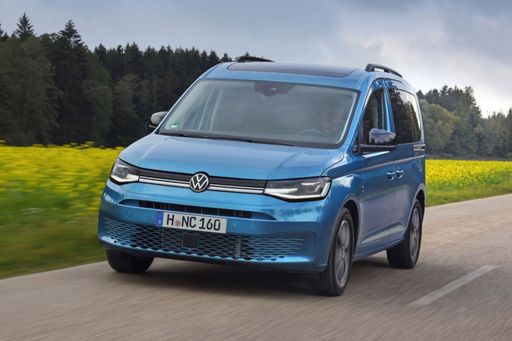 @ Volkswagen AG / VW Media
@ Volkswagen AG / VW Media
VW Caddy
Abarth 500 595 695
The Abarth 500, particularly in its 595 and 695 renditions, captures the spirit of Italian motoring with its compact yet aggressive design. Known for its lively performance and distinctive styling, this little powerhouse is a joy to drive, offering an engaging experience that appeals to enthusiasts. With its rich motorsport heritage, the Abarth 500 embodies the essence of fun and excitement on both the streets and the race track.
details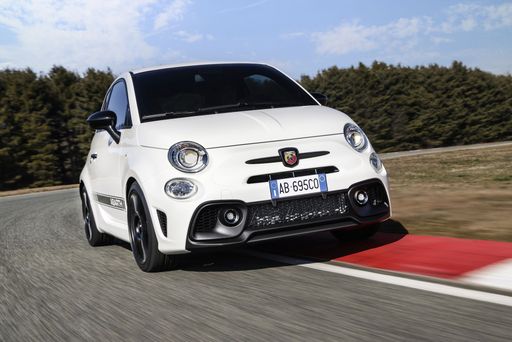 @ Abarth / Stellantis Media
@ Abarth / Stellantis Media
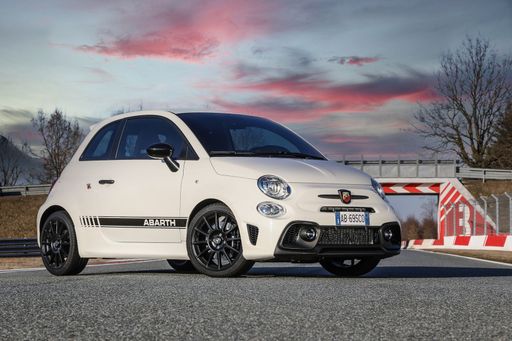 @ Abarth / Stellantis Media
@ Abarth / Stellantis Media
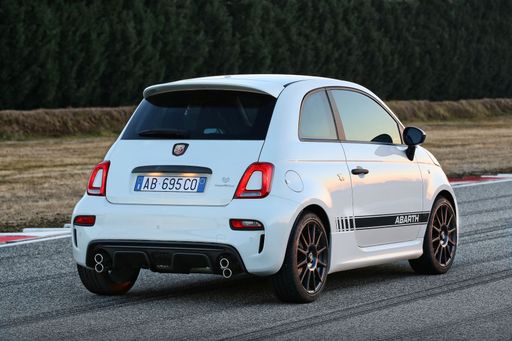 @ Abarth / Stellantis Media
@ Abarth / Stellantis Media
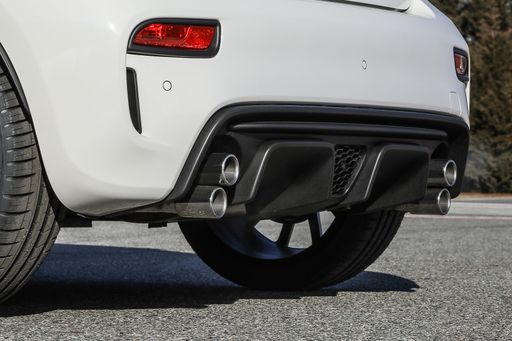 @ Abarth / Stellantis Media
@ Abarth / Stellantis Media
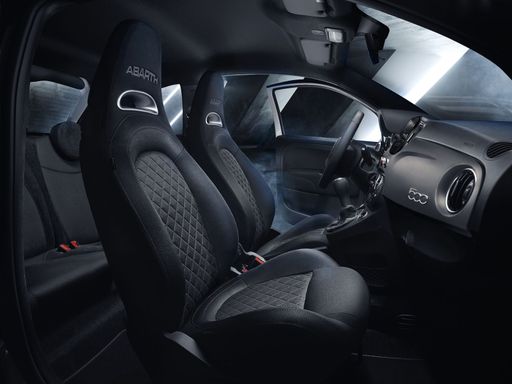 @ Abarth / Stellantis Media
@ Abarth / Stellantis Media
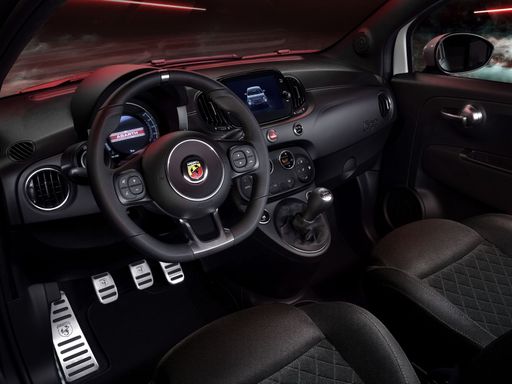 @ Abarth / Stellantis Media
@ Abarth / Stellantis Media
VW Caddy
The VW Nutzfahrzeuge Caddy Hochdach-Kombi is a versatile choice for those seeking extra space and practicality in their everyday vehicle. With its functional high roof and adaptable interior, it easily accommodates both passengers and cargo. The Caddy also stands out with its modern design and features aimed at providing comfort and convenience on the road.
details @ Volkswagen AG / VW Media
@ Volkswagen AG / VW Media
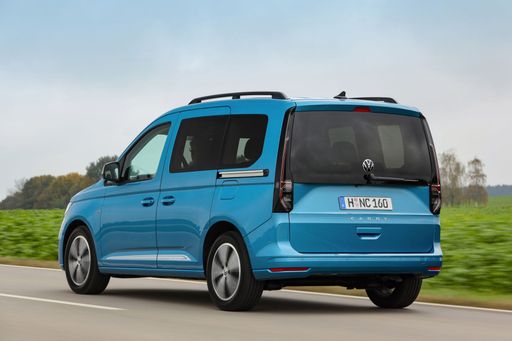 @ Volkswagen AG / VW Media
@ Volkswagen AG / VW Media
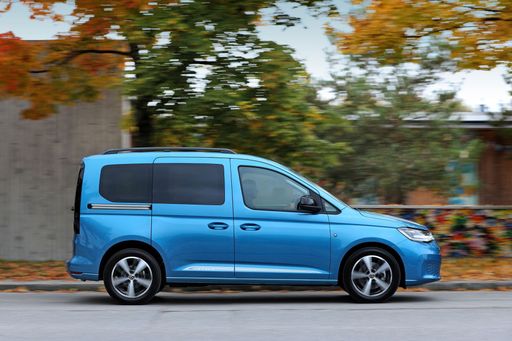 @ Volkswagen AG / VW Media
@ Volkswagen AG / VW Media
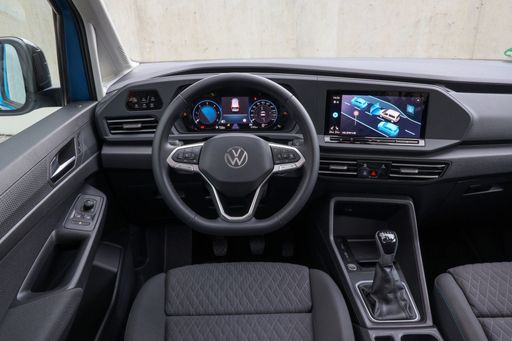 @ Volkswagen AG / VW Media
@ Volkswagen AG / VW Media
 @ Abarth / Stellantis Media
@ Abarth / Stellantis Media
|
 @ Volkswagen AG / VW Media
@ Volkswagen AG / VW Media
|
|
|
|
Costs and Consumption |
|
|---|---|
|
Price
32600 - 39400 £
|
Price
27800 - 45900 £
|
|
Consumption L/100km
-
|
Consumption L/100km
0.5 - 6.9 L
|
|
Consumption kWh/100km
17.1 - 18.8 kWh
|
Consumption kWh/100km
-
|
|
Electric Range
242 - 265 km
|
Electric Range
116 - 121 km
|
|
Battery Capacity
37.80 kWh
|
Battery Capacity
19.70 kWh
|
|
co2
0 g/km
|
co2
10 - 165 g/km
|
|
Fuel tank capacity
-
|
Fuel tank capacity
50 L
|
Dimensions and Body |
|
|---|---|
|
Body Type
Hatchback
|
Body Type
High Roof Estate
|
|
Seats
4
|
Seats
5 - 7
|
|
Doors
3
|
Doors
5
|
|
Curb weight
1410 - 1435 kg
|
Curb weight
1575 - 1998 kg
|
|
Trunk capacity
185 L
|
Trunk capacity
-
|
|
Length
3673 mm
|
Length
4500 - 4853 mm
|
|
Width
1682 mm
|
Width
1855 mm
|
|
Height
1518 mm
|
Height
1819 - 1860 mm
|
|
Max trunk capacity
550 L
|
Max trunk capacity
2556 - 3700 L
|
|
Payload
370 - 385 kg
|
Payload
501 - 710 kg
|
Engine and Performance |
|
|---|---|
|
Engine Type
Electric
|
Engine Type
Petrol, Diesel, Plugin Hybrid
|
|
Transmission
Automatic
|
Transmission
Manuel, Automatic
|
|
Transmission Detail
-
|
Transmission Detail
Manual Gearbox, Dual-Clutch Automatic
|
|
Drive Type
Front-Wheel Drive
|
Drive Type
Front-Wheel Drive, All-Wheel Drive
|
|
Power HP
155 HP
|
Power HP
102 - 150 HP
|
|
Acceleration 0-100km/h
7 s
|
Acceleration 0-100km/h
11.4 - 14 s
|
|
Max Speed
155 km/h
|
Max Speed
173 - 186 km/h
|
|
Torque
235 Nm
|
Torque
220 - 320 Nm
|
|
Number of Cylinders
-
|
Number of Cylinders
4
|
|
Power kW
114 kW
|
Power kW
75 - 110 kW
|
|
Engine capacity
-
|
Engine capacity
1498 - 1968 cm3
|
General |
|
|---|---|
|
Model Year
2023
|
Model Year
2024
|
|
CO2 Efficiency Class
A
|
CO2 Efficiency Class
E, F, B
|
|
Brand
Abarth
|
Brand
VW
|
Is the Abarth 500 595 695 offered with different drivetrains?
The Abarth 500 595 695 is offered with Front-Wheel Drive.
The prices and data displayed are estimates based on German list prices and may vary by country. This information is not legally binding.
